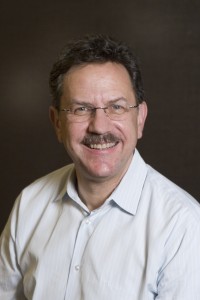 The first Dean’s Distinguished Lecture of 2016 kicked off with an excellent presentation by the Donald Bren Professor of Developmental and Cell Biology, Arthur D. Lander, M.D., Ph.D. The February 4th lecture took place at the Crystal Cove Auditorium at the UCI student center. Professor Lander’s lecture, entitled “Purpose, Complexity, and Failure in the Living World,” introduced the audience to the fascinating world of complex biological systems.
The first Dean’s Distinguished Lecture of 2016 kicked off with an excellent presentation by the Donald Bren Professor of Developmental and Cell Biology, Arthur D. Lander, M.D., Ph.D. The February 4th lecture took place at the Crystal Cove Auditorium at the UCI student center. Professor Lander’s lecture, entitled “Purpose, Complexity, and Failure in the Living World,” introduced the audience to the fascinating world of complex biological systems.
Beginning with a historical perspective on how biologists ask questions. Professor Lander noted that, whereas questions in the physical sciences are generally answered by statements about cause-and-effect mechanisms, in biology we get to ask questions like “why are there elephants?” which require a very different kind of answer. Such questions, he pointed out, are motivated by our understanding that things in biology have purposes, i.e. they perform functions that account for why they are present.
The young field of systems biology, he noted, tries to explain phenomena at the cellular and molecular level in terms of how they contribute to functions of the entire organism. Doing this successfully means integrating a daunting amount of information, Typically, mathematics, statistics, and “big data” computer science are all part of the process.
Professor Lander concluded with a discussion on how systems biology predicts the existence of “combinatorial fragility”, the tendency of complex systems that have been selected to withstand many kinds of disturbances to fail in the face of disturbances that come in unexpected combinations. He discussed how this concept can help us understand, and potentially treat, birth defects, Alzheimer’s disease, and cancer.
Professor Lander is the founder and director of the UCI Center for Complex Biological Systems, one of only 13 Systems Biology centers in the U.S. supported by the NIH. As director, Professor Lander was able to provide insights into the field of systems biology that very few individuals could.
